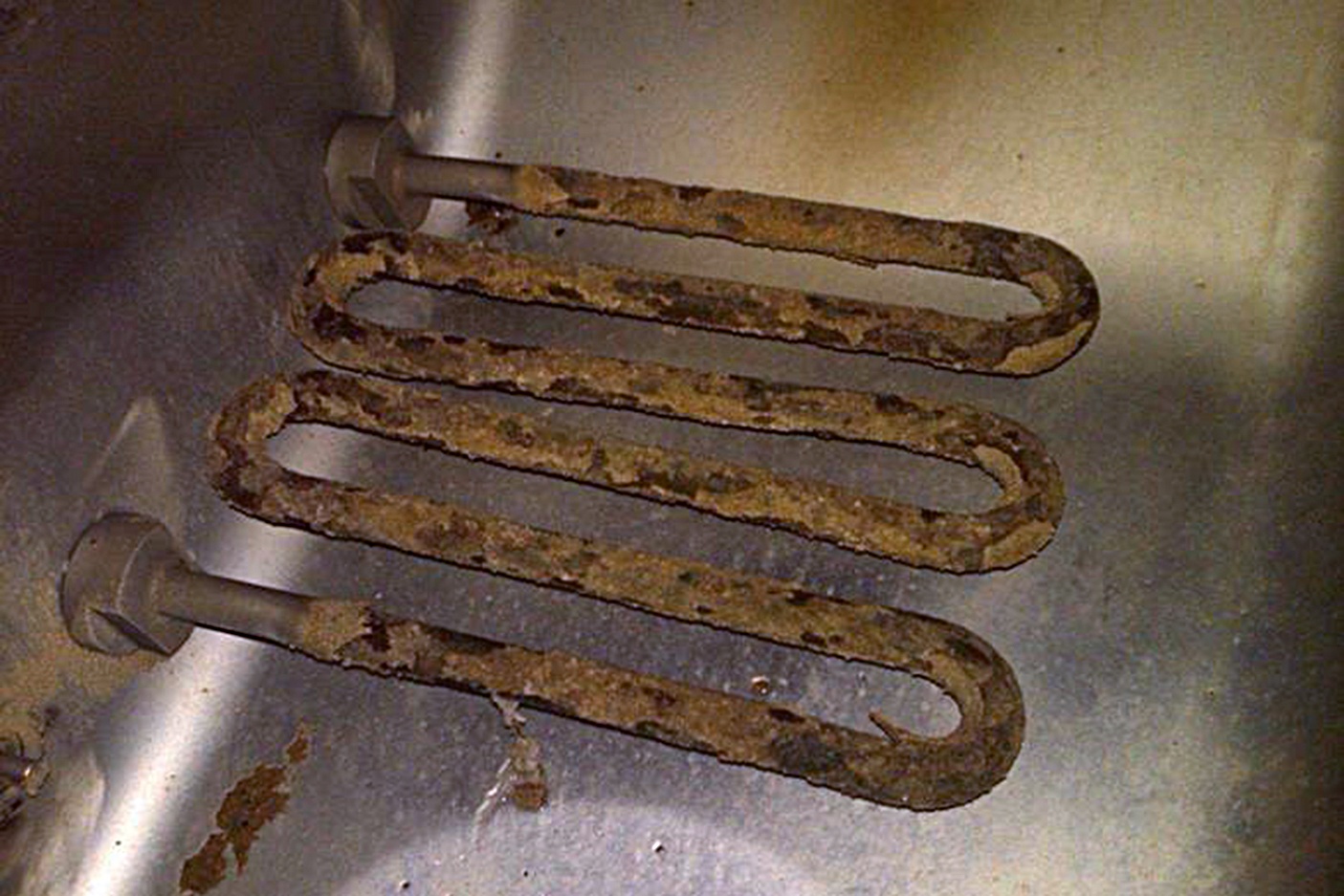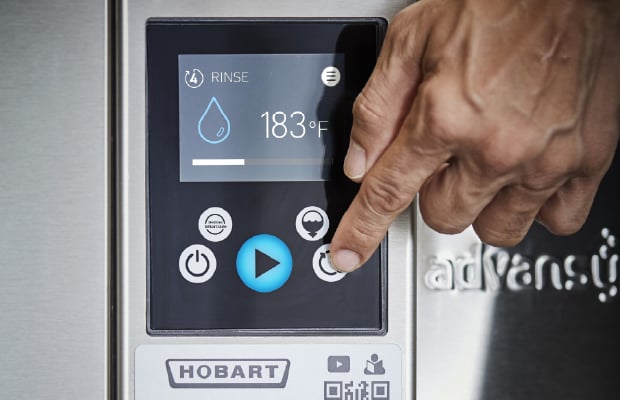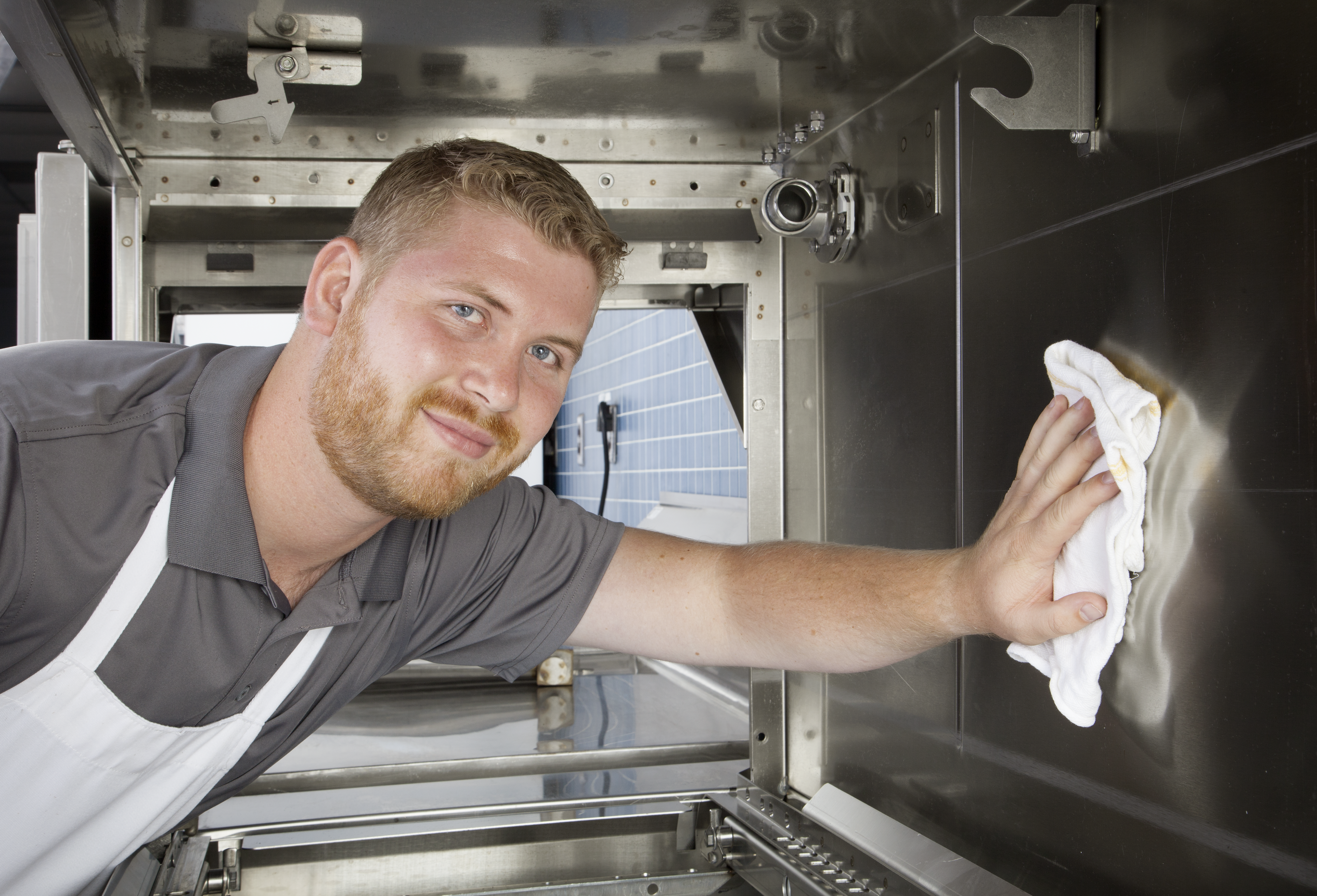Water is an essential element for all living things, and not only is it essential for life, it is a key component in cleaning. In commercial dishwashers water is crucial, as hot water sanitizes, the force of water breaks away caked on foods, and water is the medium for detergent and rinse aid to get dishes sparkly clean. But sometimes the water itself can cause problems.
Hard Water, Big Problems
The water we use starts as rain and makes its way through the ground, collecting calcium, magnesium and other minerals along the way. Water is described as either hard or soft depending on the amount of minerals dissolved in it, especially calcium and magnesium. Hardness due to calcium alone is known as calcium hardness, while solely magnesium is labeled magnesium hardness. The sum of both calcium and magnesium hardness is what is known as total hardness measured in grains per gallon. Water that has 3.5-7 grains of these minerals per gallon is classified as moderately hard, while anything over 7 grains per gallon is hard. Many parts of the United States have water that tests at moderately hard to very hard levels. Your own water hardness levels can be tested with a water hardness testing kit.
Over time, constant exposure to hard water leads to scale build up and rust within pipes and in components of the dish machine that use water. Hard water decreases sudsing of soap and detergent and leads to build up that can cause issues such as:
- Corrosion and rust on pipes and dish machine components
- Decreased efficiency and eventual mechanical failure in components such as the wash pump and heating element
- Spotting or cloudy residue on glasses and other dishware due to diminishing results
Combatting Hard Water Issues with Water Treatments
Regular cleaning of your commercial dishwasher plays an important role in keeping the equipment running efficiently and at top performance levels. But even a complete manual descale or deliming can’t reach all the mechanical components within a dish machine. To truly protect your investment, treating water to decrease hardness levels will ensure reliable operation and improve the longevity and functionality of the machine.
There are several hard water technologies commercially available, both conventional and non-conventional, and include the following three types:
- Conventional Softeners or Sodium Type Ion Exchange Softening Technologies. This process uses table salt or specialty salts to exchange calcium and magnesium in the water with sodium ions on the exchanger surfaces.
- Pressure Differential Induced Scale Reduction Technology. As the name implies, this method uses a pressure differential created by restricting water flow through a pipe to induce dissolved calcium precipitate out of the water as suspended particles.
- Electromagnetism Induced Scale Reduction Technology. A magnetic field created with electricity causes dissolved minerals or ions in water (especially calcium) to precipitate out and form stable calcite or scale with associated formation of acidic carbon dioxide gas which dissolves in the water to remove already existing scale.
Field studies have shown that the conventional softeners (sodium ion exchange) are more effective than the other two technologies in reducing scale build up on important machine components, thereby ensuring performance levels and functionality of the machine. The reduction in build-up also keeps the machine looking clean and in top condition and helps ensure all glassware and dishes come out of the machine with reduced spots and films.
Hobart offers a number of water treatment options as an accessory to its line of commercial dishwashers, including sediment filters, scale sticks and water softeners. “We normally recommend a total water hardness of 3.5 grains per gallon or less for optimal performance in warewashers,” says Alexander Anim-Mensah, engineering manager -- Warewash, ITW-Hobart Corp. “Any water with total hardness above that level will need a water softener.”
Contact your sales representative to learn more about the water treatment accessories available from Hobart and the best options for your warewasher. Our service teams can also perform a test of the water hardness in your operation.





.png)


%20proc%20%20(1).jpg)


